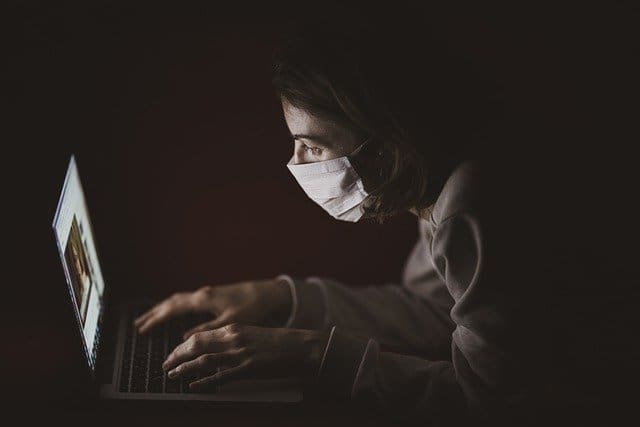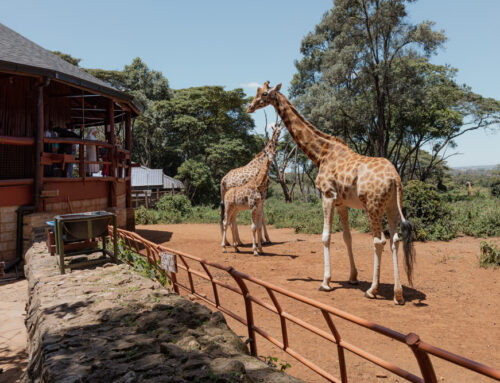What To Do If You Get Sick in a Foreign Country

Getting Sick on The Road: What to do If You Fall Sick in a Foreign Country

Every experienced traveler has their own sickness story. My own features Marrakech, some questionable escargot, and a surprising lack of toilets for a major conurbation. The problem is things can (and do) go wrong when you’re traveling. People get sick. Especially when their sensitive bellies aren’t used to the local cuisines.
Most of the time, it’s just a case of drinking enough water and staying as close to the hotel facilities as possible. But there are times, and thankfully they’re rare, when people get sick enough to need medical attention. So if you find yourself in that situation, follow this step-by-step guide on what to do if you get sick while traveling.
Step One: Be Prepared For the Worst
Obviously no-one wants to think about getting ill while on vacation. But, trust me, it happens. So before you even set foot on the plane, make sure to prepare for the worst.
Buy Travel Insurance
Be smart and purchase comprehensive travel insurance. It should cover every destination you visit for the whole duration of your stay. It should also cover emergency medical care and operations plus the price of getting you home. And here’s a handy tip: toothache can be crippling. Make sure your insurance covers dental emergencies too.
Pack a First-Aid Kit
For minor ailments, pack a first-aid kit. For the most part, it’ll just be an annoyance in your luggage. But, if you ever come to use it, you’ll be grateful for putting in the effort. A decent first-aid kit will include antiseptic, painkillers, wound-cleaning gauze, and Band-Aids.
Get Travel Vaccines
You should follow the basic advice of the CDC and get your travel vaccines. To find out what you need for a particular destination, speak to your health care provider.
Learn Emergency Phone Numbers
Finally, be super safe and learn the basic medical procedures of your travel destination. Most importantly, know the local emergency phone number by heart. If, perhaps after one too many cervezas, you forget the digits, 112 has been adopted by many countries as a primary or secondary emergency number.
Step Two: Stay Cool, Follow Normal Procedures
If you do find yourself with unpleasant symptoms on vacation, it’s important that you stay calm and collected. In all likelihood, you haven’t caught that super-rare tropical disease. It’s probably just a stomach bug.
However, you should never ignore your body. Aches, fevers, coughs, headaches, difficulty sleeping, diarrhea, being or feeling sick… they’re all signs that an illness is on the way. As soon as they strike, hit back and stay hydrated.
It’s also vital that you don’t try to “push through the pain”. Stop drinking alcohol and cancel that night out. You’re sick. You’re only going to make it worse by putting your body through the torture of five hours dancing to reggaeton.
Step Three: Speak to Your Insurance Provider
Now you’re in control physically, it’s time to take control financially. Because medical care costs. And sometimes it costs a lot.
Thankfully, you took out that comprehensive travel insurance. No need to thank me. And now it’s time to reap the rewards. Call your insurance provider as soon as you fall ill to find out what’s covered. Also ask them whether they need to pre-approve treatments – it’s a requirement for some insurers.
You should also refresh yourself on how to make a claim. Typically, you’ll need to pay for the treatment upfront and claim for a reimbursement later. If that’s the case, make sure to keep all receipts in a secure location. If the hospital doesn’t automatically give you one, demand a receipt with an itemized list of charges.
Step Four: Seek Medical Advice
Your next step is to consult a doctor. To find local medical care, use the Global Travel Clinic Directory. There you’ll be able to narrow down medical facilities by country, the care they provide, and even what language the doctors speak. Handy.
Obviously, the medical professionals will give you expert advice. In all probability, you’ll be told to drink plenty of water, get lots of rest, and maybe take some medicine to bring the symptoms under control.
However, if you’re advised to seek further medical care, trust your doctor and do it. For example, you may be asked to stay in the hospital overnight. No, it probably won’t be as comfy as your plush hotel. But your health is of the utmost importance. Stay.
If you feel uncomfortable leaving your luggage or valuables unattended in the hospital, drop them off at a secure storage point such as Bounce.
Also, you should make sure you aren’t hit with any shock charges. Ask for an estimated cost for your treatments. After, double-check with your insurance company that you’re covered.
Step Five: Contact Your Embassy/Consulate
If the proverbial really does hit the fan – and with some tropical illnesses that’s not off the cards – contact your local embassy or consulate. The official list of US embassies, consulates, and diplomatic missions can be found here. But if you’re not a US citizen, a Google search will bring up your home country’s offerings.
Once you’re in contact with the embassy, someone will be able to help you find emergency medical assistance. And, if needed, they can arrange drastic actions such as airlifting you out of the country.
Not quite as spectacular, but no less important, consuls can contact your friends and family back home to keep them updated on the situation.
Finally, if you’re running low on cash, consuls can also arrange for money to be wired to you from your loved-ones. This becomes particularly important if you need to pay for your medical care upfront.
And so we have it. Follow these five important steps and you won’t go too far wrong. Remember, if you get sick while traveling, you should take your illness seriously. Seek medical attention and contact the authorities. But don’t panic. In all likelihood, the symptoms will fade and you can get back to having a wonderful trip. And just a little side note, if you do find yourself in Marrakech and someone offers you escargot, politely decline.




